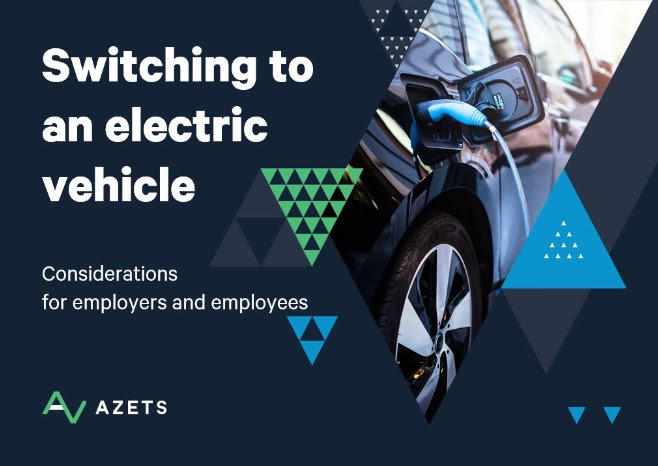
Win-win for employers and employees switching to an electric vehicle
The UK Government’s path to net zero and related tax incentives is one of the major factors that has led to Environmental, Social and Governance (ESG) becoming an increasingly important part of business strategy.
Alongside this, there has been huge investment in battery technology by vehicle manufacturers, making electric vehicles (EVs) cheaper to buy and more efficient to run. According to UK Government statistics, the amount of battery-powered vehicles on UK roads increased by 297% between June 2020 to June 2022.
While ESG adherence is a major contributor in the decision for businesses to switch to electric vehicles, there is no doubt that the tax reliefs available make these even more attractive. David Hedges, Head of Employment Taxes, looks at the key considerations below.
Why should business owners and employees consider electric vehicles?1. Tax benefits
There are some extensive tax reliefs available to businesses, particularly where zero emissions vehicles are chosen. These reliefs include reduced Benefit in Kind (BIK) percentages, enhanced capital allowances and possible 100% input tax recovery. 2. Enhanced reputation
Aside from improving their environmental impact, employers are aware that consumers of products and services are becoming increasingly conscious of the environmental impacts of their purchases. This equally applies to both individual consumers and other businesses who are considering their supply chains.Taking environmentally friendly action and being responsible has now become an important marker for many businesses to consider to remain competitive. In addition, many businesses are being asked to report on their carbon footprint and are able to confirm their environmental credentials via ‘green’ certifications.
3. Employee attraction and retentionIn an already competitive labour market seeing strong upward pressure on base pay, employers are looking for new ways to attract and retain employees. While increased salaries is an option, it puts further long-term financial pressure on the employer with the gratitude factor diminishing fast with the employees and no guarantees of loyalty.Employers may instead look to provide access to a company vehicle. Benefit in Kind charges (on which employees will pay tax and employers pay National Insurance) for providing electric vehicles currently sit at just 2%. Providing via a salary sacrifice arrangement can allow for the provision to be ‘cost neutral’ to the employer while still representing a saving to the employee versus financing/leasing privately.4. Business mileage costsBusinesses that are incurring significant business mileage costs are likely to benefit from the reduced charging costs of electric vehicles versus traditional petrol or diesel options.

Further information on the benefits can be found in our electric vehicle guide. This guide also contains detail on the impact of the usage of employees’ own vehicles for business purposes, as well as FAQs.
